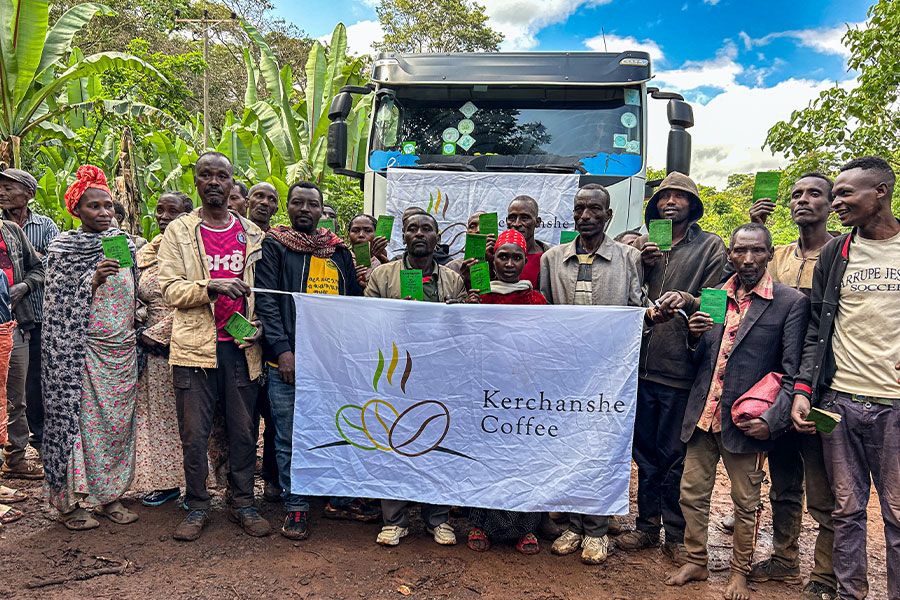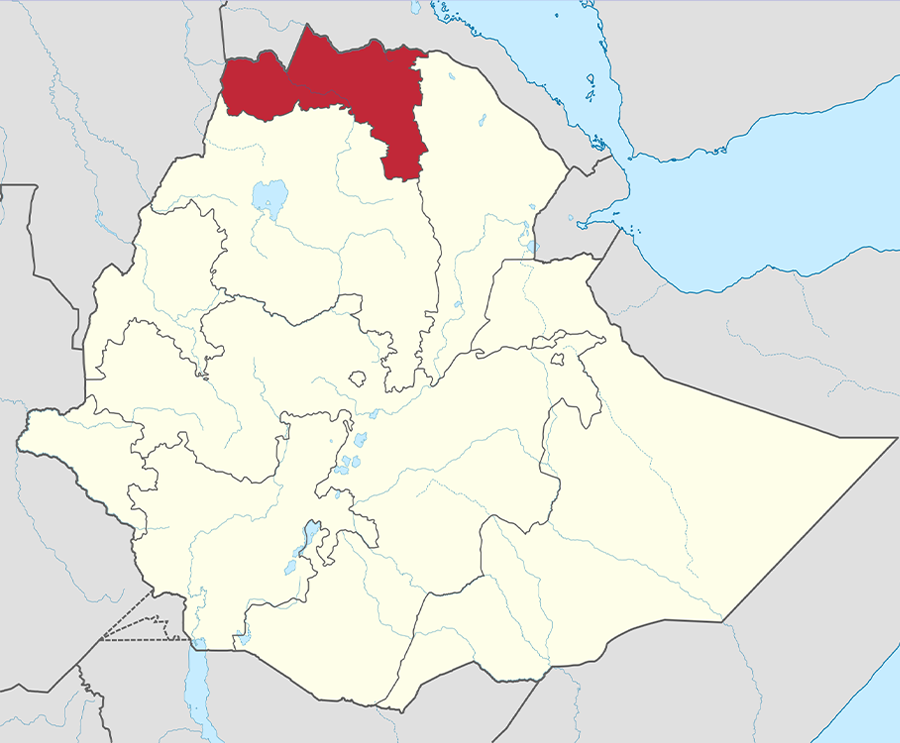
Fortune News | Sep 03,2022
Mar 26 , 2022
By TSION HAILEMICHAEL ( FORTUNE STAFF WRITER )
A long-awaited legislative piece that formalises contract farming models has reached the final stage before a landmark parliament passage.
Federal officials hope to encourage expanding a demand-driven farming system by rolling out a legal framework that allows agro-processing industries to source raw materials from millions of small-scale farmers. Lower administrative levels in regional states authenticate contracts between farmers and agro-processors. Contract farming has been limited to a few agricultural commodities, including oilseeds, sugarcane, and barley.
In the making for the past five years, the bill was initially under the Agricultural Transformation Institute (formerly an Agency) before the Ministry of Agriculture (MoA) took over the mandate three years ago. It intends to legalise contract farming models.
The centralised and out-grower models concerns two parties: the buyer and seller. The former is a contractor who does not engage in production but agrees with the producer. The latter allows a contractor, which itself is a producer, to enter into contracts with other smallholder farmers. Multipartite and intermediary contract farming arrangements allow the involvement of a third party. The contractor enters an agreement with a third party, such as a cooperative or union, which acts on behalf of the producer. The involvement of a third party under a multipartite contract, on the other hand, is based on the goodwill of contracting parties.
In 2019, the Ministry of Trade & Industry (now the Ministry of Trade & Regional Integration) facilitated contracts to sell oilseeds. However, officials suspended contract farming for sesame and pulses in six regional states last year, alleging widespread illicit activities.
Established in 2013, Gonder Malt Factory has sourced barley from smallholder farmers through contract farming arrangements for the past five years. Last year, the factory sourced 12,000qtl of malt barley through the contract farming agreement it entered with 2,200 farmers who harvested the crop on 963ht of land in the Amhara Regional State. The amount is 13pc of the 90,000qtl of barley the factory used for malt production last year.
Erected with an investment outlay of 35 million dollars, the plant has an annual production capacity of 16,000tn of malt, processing 23,000tn of raw material. It cost the factory 2,250 Br to buy a quintal of barley last year.
Gonder Malt Factory made 3.1 million Br available for small-scale farmers through contract farming agreements, according to Adebabay Tisega, administrator of input supply. Farmers are expected to cover the costs of farming inputs such as fertilisers and improved seeds with the finances the factory provides.
The bill aspires to formalise such engagements, facilitating the implementation of contract farming and providing security for the contractor and the farmers, according to Dereje Abebe, team leader for out-growers and contract farming at the Ministry.
“It will allow farmers to ascertain future income and produce accordingly," he said.
The duration of the contracts depends on terms and the production method. However, after the proclamation is approved, the Agriculture Ministry will introduce a directive to determine the duration. The terminating party will be subjected to pay compensation for damages in contract termination. The compensation amount will be determined by a regulation legislating by the Council of Ministers.
“The Ministry is working on the regulation and directives,” said Dereje.
This year, Gondar Malt Factory has entered into contracts with five unions, comprising 27 cooperatives. It has collected 30,000qtl of barley through deals and other sources.
“Although there is high demand for the commodity, supply is much lower this year,” said Adebabay.
Mesganaw Abeje, 36, a father of five who lives in Debarq, North Gonder, is one of the farmers that entered into a contract with Gondar Malt Factory last year. He cultivated barley and teff on two hectares of land, supplying the factory for the past four years, including last year's 36qtl, earning 100,000 Br.
Mesganaw has not entered into a contract with the factory this year due to skyrocketing prices for agricultural inputs. Prices for a quintal of fertiliser have nearly tripled to around 4,800 Br a quintal.
“I don't know whether I can afford to buy this time around," he told Fortune.
Anticipations and apprehensions of higher prices of agricultural commodities next year have discouraged him from sowing his fields.
“I don't want to lose money, entering into a contract with a predetermined price,” he said.
The anticipation of price surges is one of the major reasons pushing farmers away from adhering to the terms of contracts, according to Assefa Senbeta, a plant scientist who worked at the Ethiopian Seed Enterprise (ESE).
“The contract itself is prone to manipulation,” the expert said. “The one-size-fits-all approach is not addressing the buyer and seller's needs.”
Assefa, who has had the opportunity to monitor some of the transactions through contract farming closely, says the prices of agricultural commodities have been volatile in recent years, which poses a transaction risk to farmers and agro-processors.
“Contract farming can offer predictable prices for sellers and buyers,” he said. “Effective enforcement mechanisms are needed."
Prices of the grain are rising, too. This year, a quintal of barley was sold for 3,800 Br, a 68pc jump from last year.
Assela Malt Factory and breweries like Heineken have also been engaged in contract farming. Although wereda administrations provide a guarantee for the factory, it is very challenging to enforce some of the contracts, says Adebabay.
“Some farmers are unwilling to return the loans they receive to purchase agricultural inputs,” he said.
Cases arising from disputes like these often make it to civil courts. The bill makes unlawful contract terminations criminal offences tried in criminal courts.
The bill was tabled to Parliament two years ago, after passing the verification from the Attorney General (now defunct) and winning the nod of the Council of Ministers. However, it was sent back to the Agriculture Ministry with recommendations, according to Dereje. Following the establishment of a new government last September, the Ministry held consultative meetings with parties in the value chain for additional input. The discussions also included representatives from the regional and zonal levels.
The Ministry sent the bill to the Ministry of Justice two months ago.
“We're expecting a response in the coming weeks,” said Dereje.
PUBLISHED ON
Mar 26,2022 [ VOL
22 , NO
1143]

Fortune News | Sep 03,2022

Fortune News | Aug 06,2022

Fortune News | Aug 20,2022

Fortune News | Jan 01,2022

Fortune News | Feb 19,2022

Fortune News | Mar 09,2019

Advertorials | May 30,2025

Fortune News | Nov 04,2020

Radar | May 24,2025

Fortune News | Oct 17,2020

Dec 22 , 2024 . By TIZITA SHEWAFERAW
Charged with transforming colossal state-owned enterprises into modern and competitiv...

Aug 18 , 2024 . By AKSAH ITALO
Although predictable Yonas Zerihun's job in the ride-hailing service is not immune to...

Jul 28 , 2024 . By TIZITA SHEWAFERAW
Unhabitual, perhaps too many, Samuel Gebreyohannes, 38, used to occasionally enjoy a couple of beers at breakfast. However, he recently swit...

Jul 13 , 2024 . By AKSAH ITALO
Investors who rely on tractors, trucks, and field vehicles for commuting, transporting commodities, and f...

Oct 11 , 2025
Ladislas Farago, a roving Associated Press (AP) correspondent, arrived in Ethiopia in...

Oct 4 , 2025
Eyob Tekalegn (PhD) had been in the Governor's chair for only weeks when, on Septembe...

Sep 27 , 2025
Four years into an experiment with “shock therapy” in education, the national moo...

Sep 20 , 2025
Getachew Reda's return to the national stage was always going to stir attention. Once...